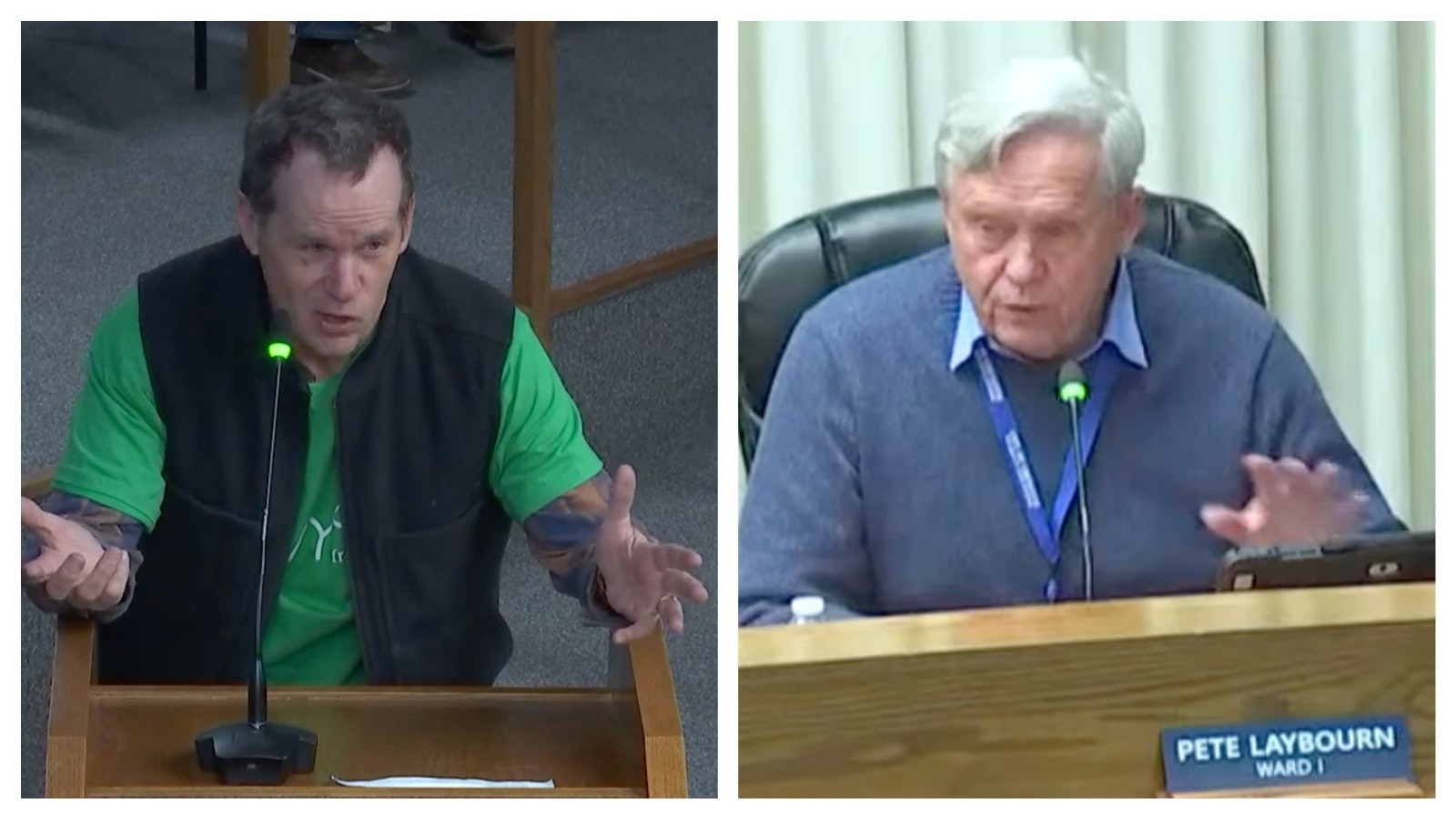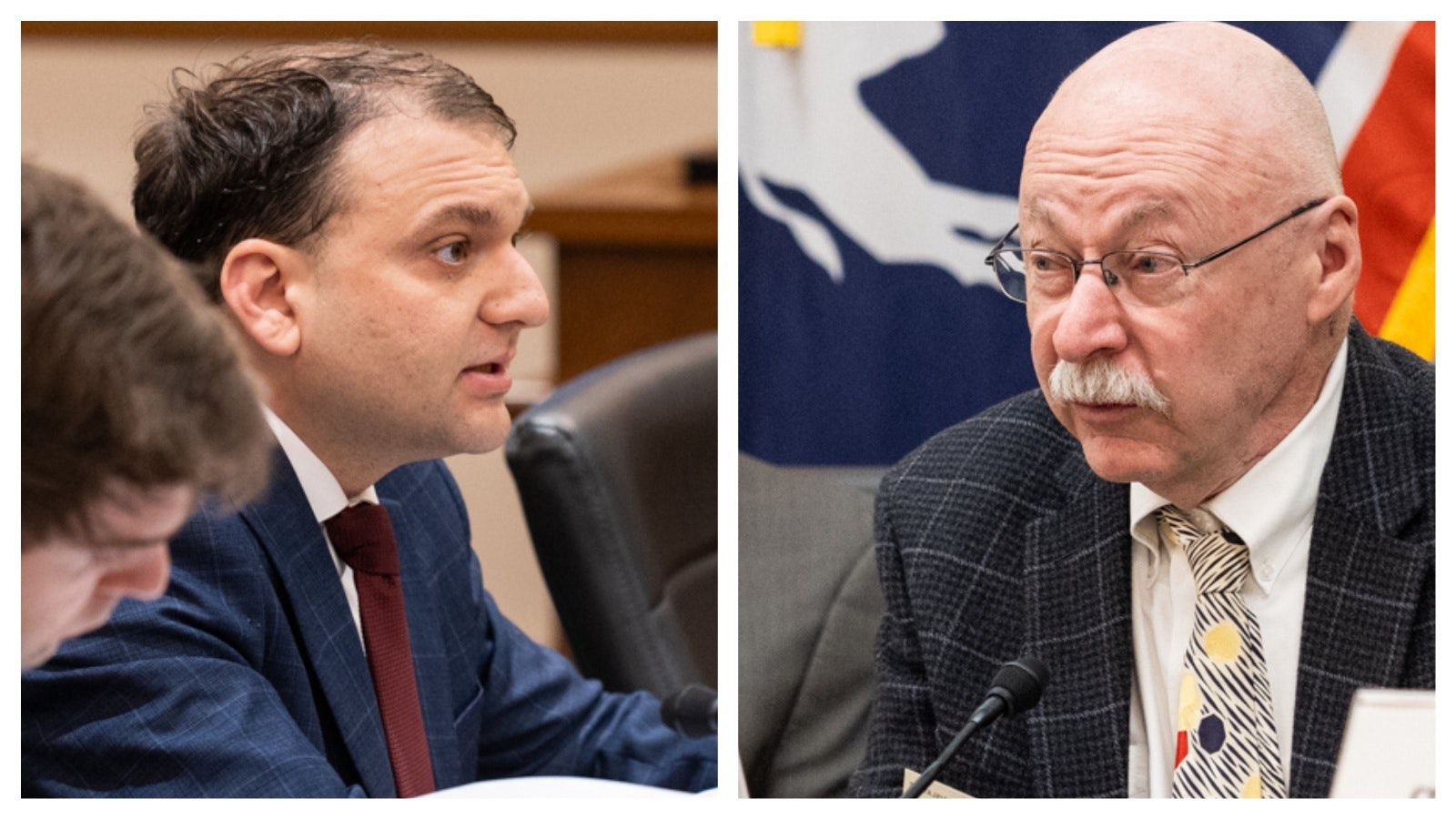The Wyoming Freedom Caucus has succeeded in its goal of passing five core pieces of legislation through the state House in the first 10 days of the Legislative session.
By the eighth day of the session on Thursday, the House had passed bills requiring proof of Wyoming residency and U.S. citizenship, invalidating driver’s licenses issued to illegal immigrants in other states, prohibiting state agencies from engaging in any diversity, equity, and inclusion practices (DEI) or engaging in what Republicans said are “woke” investment strategies and drastic property tax relief.
“I’m very pleased,” Rep. John Bear, R-Gillette, chairman emeritus of the Freedom Caucus, said.
The Freedom Caucus had stated in their “Five and Dime Plan,” released in late December, that they wanted to pass bills covering these topics through the House in the first 10 days of the legislative session.
In many ways the bar to achieve that goal was relatively low when considering the Freedom Caucus and other representatives with similar ideologies hold a majority of seats in the House, as well as the speaker’s position. But Bear stressed to Cowboy State Daily that getting these bills passed relatively quickly was “really big lifts.”
Now, the real test awaits when the Senate considers these bills. That won’t likely take place until around Feb. 12, the deadline for House bills to pass over to the Senate and vice-versa.
“I’m anxious to see some votes,” Bear said.
When asked on Tuesday if she expects significant changes to the House bills, Senate Majority Floor Leader Tara Nethercott, R-Cheyenne, nodded her head slowly, paused and then spoke.
“Most bills actually should be amended and require debate in order to craft thoughtful, lawful legislation that does what it’s intending to do,” she said. “I am concerned with the level of the freshman House members. Certainly learning that skill set takes a little bit of time, so since they’re new, maybe they haven’t developed the level of skill to amend bills to work through the way a more senior legislator would. I certainly feel the weight of some of those bills coming over the work that may be required.”
Taking Their Time
The six House bills addressing the five core topics all sailed through committees with little opposition and almost no amendments added to them. Typically, bills receive a fair amount of amendments at this stage.
When they got to the House floor there was much more debate on the bills, resulting in what Bear calculated to be 14 hours of debate on the five core issues. This came in addition to the 10 hours of committee consideration given to the bills.
Of the 20 amendments brought to the bills on the House floor, only three were approved by the body.
Rep. Ken Clouston, R-Gillette, believed this was a result of a directive to quickly pass the Five and Dime agenda.
“‘Why did you vote against this?’ No one’s really got a good answer for me,” he said.
House Speaker Rep. Chip Neiman, R-Hulett, told Cowboy State Daily he was proud of what he saw as a deliberative process taking place and didn’t feel like the 10-day goal had any influence on the proceedings. Neiman said he was very sensitive to the political optics of that goal and didn’t want it to be leveraged against the caucus at a later date.
“I believe those bills moved through at the pace that they really needed to,” Neiman said. “I don’t want to be accused of saying we’re just going to shove them in the center … because that was our commitment because they had to be out of here in 10 days.”
ESG
Specifically, he mentioned the amendment that was made to a bill prohibiting Wyoming investment managers from investing state money in environmental, social, or governance (ESG) standards. Bear cited the inclusion of this amendment by bill sponsor Rep. Chris Knapp, R-Gillette, as an example of the Freedom Caucus working cooperatively with other members.
The bill as currently written codifies in law current state rule.
An earlier version of the bill had included a penalty aspect, which directed the Wyoming Attorney General to sue any firm caught putting the state’s money into an investment vehicle with ESG for financial damages. But it was scrapped after State Treasurer Curt Meier and officials with the Wyoming Retirement System warned that the penalty would drive the best financial firms to drop the state as a client and potentially cause a loss of $5 billion to the state’s coffers.
Rep. Martha Lawley, R-Worland, was drawn to tears earlier in the week when expressing concern about what this bill could do to the state’s pensions funds and pleaded for the House to slow down their consideration of the bill.
“I think that bill in particular had some unintended consequences and things that we needed some time and we needed to hear testimony,” Lawley said. “What happened is the system worked. In the end, Representative Knapp and I got together and we took out those penalties, and that’s really a great example of how we should work together in the Legislature.”
Rep. Karlee Provenza, D-Laramie, disagreed about the impact of this bill, saying it now does nothing.
“Why would that be part of your Five and Dime Plan to do nothing?” she questioned.
Provenza was also less glowing about the legislative process that’s been engaged so far. In the past, committee-sponsored bills, which tend to be more vetted as a result of work done over the interim session, are usually considered first at the beginning of the legislative session, giving freshman lawmakers an easy on-ramp to their legislative duties.
Instead, this year, many more individually sponsored bills including the Five and Dime slate were all considered immediately, which she believes was a result of the 10-day goal of the agenda.
“The tactic that they took was, let’s push through our controversial bills first with a new body that doesn’t understand the legislative process as well, and it just has been so slow,” she said.
As of Friday, the Senate had passed 37 bills, while the House passed 19. Senate President Bo Biteman, R-Ranchester, told Cowboy State Daily the House usually has many more bills at this point.
Rep. Art Washut, R-Casper, a veteran lawmaker, said because of this slow pace, there’ll likely be hundreds of bills that never receive consideration in the 2025 session.
Playing The Long Game
Very few amendments that members of the House, not associated with the Freedom Caucus, were added to the Five and Dime bills during the first two weeks of the legislative session.
Provenza said the few bills that were reviewed in nonpartisan debates were a breath of fresh air.
She has no illusions about the hyper-partisan atmosphere changing and said she’s “playing the long game” when it comes to the moves she makes over the next two years in the House. In short, she wants the public to be fully aware of the changes the Freedom Caucus is bringing to Wyoming, cutting funding for public services in lieu of providing drastic property tax relief, subverting local control for state-mandated social conservative causes, and placing many more restrictions on voting.
“When I get up to the mic, I’m not going up there to win,” Provenza said. “I’m going up there to talk to the people of Wyoming … talking about protecting law enforcement from bills that are going to harm them. Those are things I know the people of Wyoming care about and have historically cared about.”
During a House Travel, Recreation, Wildlife and Cultural Resources Committee meeting on Thursday, a man testified who said he would hang up his canoe oars tomorrow if it meant he could fish the same waters with his daughter that they do today when she grows up. Provenza found this emblematic of her greater mission during the 68th Legislature.
“I’m thinking about the long game,” she said. “We might lose the battle of taking care of our neighbors and our communities and the hard-working people of Wyoming, but I intend to win the war.”
Bear believes the Five and Dime Plan represents the most pressing issues felt by Wyoming residents. He comes to this conclusion based on the fact that the Freedom Caucus conducted a poll of constituents in 2024 to ask about what they care about most. Within this poll, the caucus made a particular effort to listen to what people who support Gov. Mark Gordon had to say, a significant move when considering the caucus is not in alignment with the governor on certain issues.
“We know that even the more progressive Republicans support those five issues,” Bear said.
Bear said they did this to expand from the group’s “echo chamber.”
“We have to govern now,” Bear said. “We wanted to know, what is it the people want? We’re supposed to be representatives of the people, let’s go do it. I feel like we’ve done that.”
Leo Wolfson can be reached at leo@cowboystatedaily.com.





